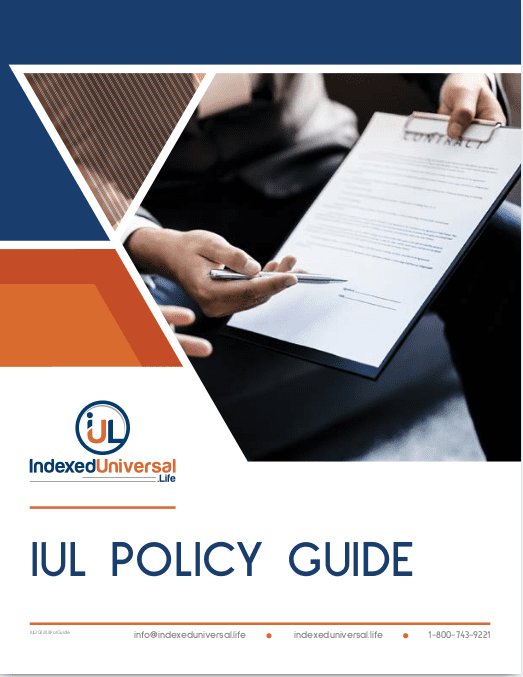All Categories
Featured
Table of Contents
Do they compare the IUL to something like the Lead Total Amount Supply Market Fund Admiral Shares with no tons, an expenditure proportion (ER) of 5 basis factors, a turn over proportion of 4.3%, and an exceptional tax-efficient document of circulations? No, they contrast it to some dreadful actively managed fund with an 8% lots, a 2% EMERGENCY ROOM, an 80% turnover proportion, and a terrible document of temporary capital gain distributions.
Common funds frequently make annual taxed circulations to fund proprietors, also when the value of their fund has actually gone down in worth. Shared funds not only need income reporting (and the resulting annual taxes) when the shared fund is rising in value, but can also impose earnings taxes in a year when the fund has actually dropped in worth.
You can tax-manage the fund, collecting losses and gains in order to lessen taxable distributions to the capitalists, yet that isn't somehow going to transform the reported return of the fund. The possession of mutual funds may need the common fund proprietor to pay approximated tax obligations (universal life insurance cash surrender value).

IULs are easy to place to make sure that, at the owner's fatality, the recipient is not subject to either earnings or estate tax obligations. The exact same tax obligation decrease techniques do not function nearly also with mutual funds. There are various, typically pricey, tax obligation traps connected with the moment acquiring and marketing of shared fund shares, traps that do not use to indexed life insurance policy.
Possibilities aren't extremely high that you're going to go through the AMT because of your mutual fund circulations if you aren't without them. The rest of this one is half-truths at ideal. For circumstances, while it holds true that there is no revenue tax obligation as a result of your successors when they acquire the proceeds of your IUL plan, it is likewise true that there is no income tax due to your heirs when they acquire a mutual fund in a taxable account from you.
Books On Indexed Universal Life
There are much better ways to avoid estate tax obligation issues than buying financial investments with low returns. Mutual funds may create income taxes of Social Safety benefits.

The development within the IUL is tax-deferred and might be taken as tax totally free income via car loans. The plan owner (vs. the shared fund manager) is in control of his/her reportable revenue, thus allowing them to decrease or perhaps get rid of the tax of their Social Safety advantages. This set is great.
Here's another very little concern. It's true if you purchase a mutual fund for claim $10 per share simply prior to the distribution day, and it disperses a $0.50 distribution, you are then going to owe tax obligations (possibly 7-10 cents per share) in spite of the reality that you haven't yet had any gains.
In the end, it's truly regarding the after-tax return, not how much you pay in taxes. You are going to pay more in taxes by utilizing a taxed account than if you get life insurance coverage. You're also most likely going to have more money after paying those tax obligations. The record-keeping demands for possessing mutual funds are significantly extra complex.
With an IUL, one's records are maintained by the insurance policy company, copies of yearly statements are sent by mail to the proprietor, and distributions (if any kind of) are completed and reported at year end. This one is also sort of silly. Of program you need to maintain your tax records in situation of an audit.
Best Indexed Universal Life Insurance Companies
Hardly a factor to get life insurance coverage. Shared funds are commonly component of a decedent's probated estate.
Furthermore, they go through the delays and costs of probate. The earnings of the IUL plan, on the other hand, is constantly a non-probate circulation that passes outside of probate directly to one's called recipients, and is for that reason not subject to one's posthumous financial institutions, unwanted public disclosure, or comparable hold-ups and costs.
Medicaid incompetency and lifetime earnings. An IUL can offer their proprietors with a stream of income for their entire life time, regardless of just how long they live.

This is advantageous when organizing one's events, and transforming properties to revenue prior to an assisted living facility arrest. Shared funds can not be converted in a similar manner, and are practically always considered countable Medicaid assets. This is another silly one advocating that inadequate people (you know, the ones that need Medicaid, a federal government program for the bad, to spend for their retirement home) ought to utilize IUL rather of mutual funds.
Accumulation Value In Life Insurance
And life insurance policy looks horrible when compared fairly against a retirement account. Second, individuals who have cash to get IUL above and past their retired life accounts are going to have to be horrible at managing money in order to ever get approved for Medicaid to pay for their retirement home expenses.
Chronic and incurable health problem biker. All policies will enable a proprietor's easy accessibility to cash money from their plan, frequently waiving any kind of abandonment fines when such people experience a major ailment, need at-home treatment, or become constrained to a retirement home. Shared funds do not offer a comparable waiver when contingent deferred sales fees still put on a common fund account whose proprietor needs to market some shares to money the expenses of such a remain.
Index Universal Life Insurance Vs Whole Life
You get to pay more for that advantage (motorcyclist) with an insurance policy. Indexed universal life insurance supplies death benefits to the beneficiaries of the IUL owners, and neither the owner nor the beneficiary can ever before lose cash due to a down market.
Currently, ask yourself, do you really require or desire a death benefit? I certainly do not require one after I reach financial self-reliance. Do I want one? I mean if it were affordable sufficient. Obviously, it isn't low-cost. On standard, a buyer of life insurance policy spends for real price of the life insurance benefit, plus the expenses of the plan, plus the earnings of the insurance provider.
Universal Guaranty Investment Company
I'm not completely sure why Mr. Morais included the whole "you can not lose cash" again right here as it was covered quite well in # 1. He just wished to duplicate the best selling factor for these points I suppose. Again, you do not shed nominal dollars, but you can lose actual dollars, in addition to face significant opportunity price because of reduced returns.

An indexed global life insurance policy owner may exchange their policy for a completely different policy without activating revenue taxes. A common fund proprietor can stagnate funds from one mutual fund company to an additional without selling his shares at the previous (hence causing a taxable occasion), and buying brand-new shares at the last, often subject to sales fees at both.
While it holds true that you can exchange one insurance coverage for an additional, the factor that individuals do this is that the first one is such an awful policy that even after getting a brand-new one and undergoing the early, adverse return years, you'll still come out in advance. If they were sold the right plan the very first time, they shouldn't have any type of desire to ever trade it and go through the early, negative return years again.
Latest Posts
Universal Seguros
Index Universal Life Insurance Reddit
Death Benefit Options Universal Life